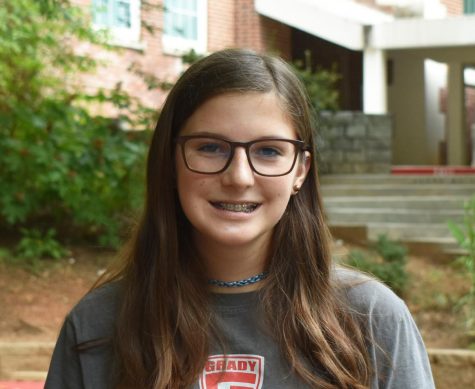Virtual learning week is unnecessary
April 12, 2021
Students have gotten used to hybrid learning, but this new balance is about to be thrown off.
After three months of hybrid schooling, Atlanta Public Schools has decided to switch to all virtual learning for April 12-16, the week after spring break. This decision was made to mitigate possible Covid-19 transmission following students’ and staff’s travels over the break. I appreciate APS prioritizing health and Covid-19 safety, but this change is disruptive and unnecessary.
In these unusual times, consistency has been the one thing keeping me sane. On March 22, I switched from all virtual learning to in-person learning, and adjusting to my new schedule took a while. After learning at home for an entire year, I had already established a routine that worked for me. When I went back to school, I was more tired than normal and my balance was thrown off. I did eventually adapt to the new rhythm of waking up, driving to school and seeing my teachers and peers every day.
Switching back to virtual learning will be disruptive to in-person students, interrupting the routines that weren’t easy for them to establish. Routines are extremely important for mental health, and studies have shown a consistent schedule leads to lower stress levels and improved sleep. Even without a pandemic, teenagers struggle with stress and sleep, but this year these difficulties have only worsened. The switch back and forth from virtual learning to in-person learning takes a toll on students and adds another layer of inconsistency to their lives.
While I know APS is trying to combat possible spread of the virus from students who have travelled over break, the reality is the risk will not be much higher than it is already. With only a small percent of students back in-person, contact is already minimal and the regulations put in place are working. From March 27 to April 2, APS reported only 21 student cases of Covid-19 and 10 staff cases across the entire district. The existing safety protocols have done their job: they’re actively isolating cases and keeping students and staff safe.
In addition, some teachers are already fully vaccinated and a growing number of students are receiving their first vaccines, making the school environment even safer. While there is a national concern that spring break partiers may lead to a spike in Covid-19 cases, most of the national dialogue is centered around the impact of college students.
For K-12 school districts, partiers and Miami Beach barhoppers aren’t a big concern. It makes sense that the safety of other, larger settings may be negatively impacted by spring break travel, but the current environment at Grady is so small and contained this is not as big of an issue. The risk of an outbreak of the virus in school is simply not high enough to warrant switching back to virtual schooling, adding more chaos into student’s lives.
The week-long hiatus from in-person learning does more harm than good for both students and teachers; the risk of possible outbreak is not high enough to warrant the disruption of education and mental health.







